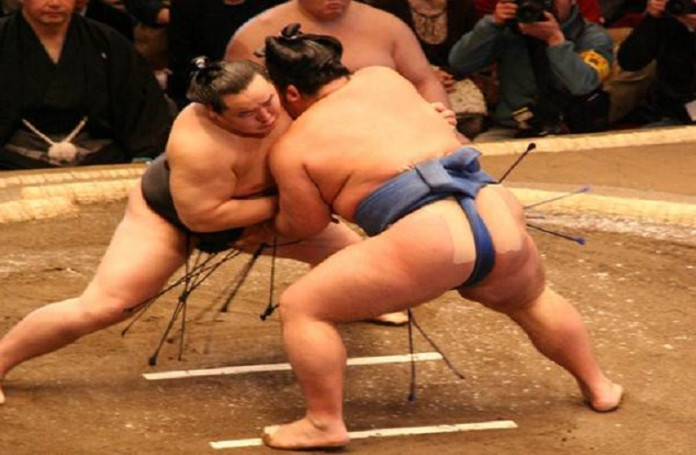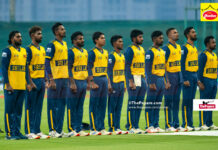All you need to know about BMI
Is it absolutely pointless to have excess amount of fat for any other sportsmen? When you see an overweight fellow on the golf course, do you assume he couldn’t possibly be physically fit?
Some medical research suggests that just because someone is overweight it doesn’t mean he or she is unfit or unhealthy. Then what does it mean? What is BMI and why do we bother with this concept?
How good is the BMI
The Body Mass Index, popularly known as the BMI has replaced the old height charts and is the most widely used tool to assess whether someone is of a healthy body weight. For most of the sports players and coaches, the BMI is a good indicator to assess the body fat, obesity and health risks. But the BMI may not be accurate for those who are muscular. Let’s take a Rubgy player whose height and weight may not tally … does he seem overweight to you?
I believe that all sportsmen over 14 years should do a full medical checkup to find out whether their body systems are in good order and to ascertain their fitness levels.
Coaches must check their players’ height, weight, BMI and general medical tests such as blood pressure and heart rate etc on a regular basis. You don’t need a doctor. During the past five years, Fat Percentage Tests as well as Metabolic Rate Tests along with Volume of Oxygen tests have become very common within the professional sports set up.
Research has shown that some players/sports persons have non-communicable diseases, even at a tender age of 12 years. Diabetics, High Blood Pressure, Cholesterol and Hormone issues, seem quite common among today’s children.
To determine your risk of obesity related diseases such as type 2 diabetics, high blood pressure and heart diseases, – BMI and fat percentage tests are the best, together with old fashioned waist circumference measurement to reduce the risk of obesity related diseases and side effects for players.
Generally players with BMI of 25-29.9 (overweight) and 30-34.9 (level 1 obesity) should have a waist size not more than 35 inches for women and 40 inches for men. For people with a BMI of over 35, the waist measurement is not a valid measurement.
Your BMI is based on your height and weight. It’s one of the ways to see if you are at a healthy weight.
Underweight – BMI less than 18.5
Healthy weight – BMI is 18.5 – 24.9
Overweight – BMI is 25-29.9
Obese – BMI is 30 or higher
Body Mass Index (BMI) for Adults
With the advancement of fitness science, we see that current day players/sportsmen pay more attention to their health and fitness as well as their image.
I remember the time the Sri Lankan Cricket team won the World Cup in 1996. Arjuna, Aravinda and Asanka Gurusinghe weren’t in their BMI region at all. But they were fit indeed, and their cardio endurance was great. More than that, their mental fitness was extremely good.
If you think that you are fit, but your BMI, fat percentage is not so good, here are some professional nutritional guidelines for you and all athletes to consider;
Depending upon the training routine, athletes should consume at least 50%, but ideally 60-70% percent of their total calories from carbohydrates. This percentage is only a guideline for estimating carbohydrate needs.
· Protein has always been a particularly popular nutrient with athletes because of its role in building and maintaining muscles. Indeed, athletes need to consume a wide variety of high-quality protein foods in their diets. However, while protein is necessary, it is not the primary fuel for working muscles, and consuming more protein than what the body can use is not going to give athletes larger and stronger muscles. While research shows that protein requirements are higher for athletes to aid in muscle repair and growth, in Colombo top school’s athletes are already consuming more protein than the body can use.
· Fat is the primary fuel for light to moderate intensity exercise. Although fat is a valuable metabolic fuel for muscles during endurance exercise and performs many important functions in the body, no attempt should be made to consume more fat. With that said, some studies have shown, athletes that consume high-fat diets typically consume fewer calories from carbohydrates. The more efficient an athlete becomes in their respective sport, the easier it is for them to operate at a lower intensity while maintaining the same level of work or maintaining the same speed (metabolic efficiency). At this lower intensity, stored fat in the muscle can be used as a fuel source. The average 70 kg athlete carries 1,500-2,000 calories in the form of carbohydrates but up to 80,000 calories in the form of fat. The old saying, “Fat burns in a carbohydrate flame” holds true, as fat cannot be used without the presence of carbohydrates. Thus, for efficient endurance and ultra-endurance athletes, carbohydrates are still important, but stored fats help them reach the finish line as well.
· Vitamins and minerals (when not consumed in food form) are classified by the Federal Drug Administration (FDA in USA) as dietary supplements. Amino acids, botanicals, herbs, and substances such as enzymes, organ tissues and glandulars, and metabolites, are also classified as dietary supplements. Many athletes believe they do not get enough vitamins and minerals in their diet and wonder if they should start taking some sort of supplement; while other athletes are on a constant quest to find the latest diet or supplement that will give them a competitive edge. The reality is that making wise food and beverage choices are crucial for peak performance and contribute to endurance and repair of injured tissues. A good working knowledge and understanding of foods that provide essential nutrients will aid in an athlete reaching their greatest potential. Consult your nutritionist or your family doctor before you take any suppliments…Do Not get any advice from your GYM aiya or Coaches.
· Athletes have increased energy needs, which allows for more opportunities to obtain the nutrients they need through a balanced diet composed of a variety of natural foods. Most sports medicine professionals agree that unless an individual has a nutrient deficiency, supplementation may not improve athletic performance.
· However, the athlete who takes a simple one-a-day type of vitamin or mineral that does not exceed the nutrient levels of the Recommended Dietary Allowance (RDA)/Dietary Reference Intake (DRI), is probably not doing any harm. An athlete should consult with his or her physician, or other health care professional, to determine whether vitamin and mineral supplementation is needed to maintain optimal health. Athletes should always choose food over dietary supplementation. The body needs more than 40 nutrients every day and supplements do not contain all the nutrients that are found in food. Supplements cannot make up for a poor diet or poor beverage choices.
· Natural foods contain a matrix of various nutrients that researchers are continuing to discover and learn more about. Often individual nutrients don’t work as effectively when isolated in a pill or supplement form.
· Self-prescribed supplement users should heed overdose warnings and look for symptoms of toxic levels of supplementation, such as diarrhea, skin rashes that do not fade, and unexplained joint pain. Fat soluble vitamins (A, D, E, and K) can be toxic when misused. Unlike water soluble vitamins in which excess amounts are excreted in the urine, fat soluble vitamins are stored in body fat and remain in the body.
· Hydration is one of the most important nutritional concerns for an athlete. Approximately 60 percent of body weight is water. As an athlete trains or competes, fluid is lost through the skin through sweat and through the lungs while breathing. If this fluid is not replaced at regular intervals during practice or competition, it can lead to dehydration. A dehydrated athlete has a decreased volume of blood circulating through the body, and consequently:
- The amount of blood pumped with each heart beat decreases
- Exercising muscles do not receive enough oxygen
- Exhaustion sets in and the athlete’s performance suffers
- By-products of exercise are not flushed out of the body as regularly as they should be
· Research has shown that losing as little as 2% of total body weight can negatively affect athletic performance. For example, if a 75kg athlete loses 1.5kg during a workout or competition, their ability to perform at peak performance due to dehydration is reduced. Proper fluid replenishment is the key to preventing dehydration and reducing the risk of heat injury in athletes engaged in training and competition.
So all chubby sporty players…It’s time to study wee bit of sports nutrition. Be FIT not FAT !














